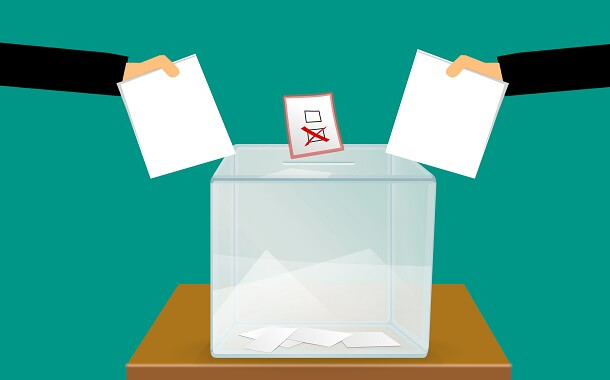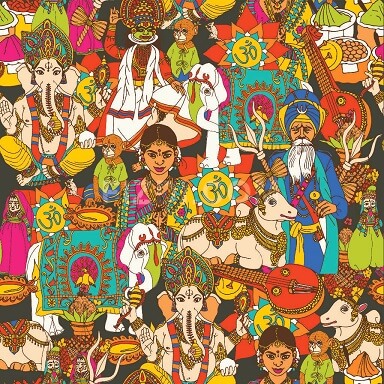An oft-repeated saying about politics is: political leaders represent the general character of the electorate. In the recently concluded Bihar elections, 130 out of 243 elected MLAs have ongoing criminal cases. The verdict made it evident that the huge amount of hard work put in the last three years by Prashant Kishor to create awareness amongst the electorate for voting on the real issues—education, employment, sanitation, poverty, economic progress, and healthcare—did not bear desirable results. His Jan Suraaj Party could only gather 3.44% vote share. The electorate of Bihar, the state with the least GDP per capita, made it amply clear that voters still prefer to vote along the lines of caste, religion, and the availability of local “strongmen” to “get things done”. Add to this toxic mix a new potent weapon which all incumbent governments have discovered in their arsenal—the ability to throw away money (rewdis) masquerading as benefits. While the opposition can only give a post-dated cheque of promises, the incumbent has the power to directly provide monetary benefits to the electorate, even when the government is in huge debt. We are witnessing this “tijori lutao, election jitao” scheme being repeated state after state.
In a way, the issue of people electing leaders along such sociological faults goes deep because of the structure of our democracy being parliamentary rather than presidential. In a small country like the United Kingdom with less than a twentieth of India’s population and an educated electorate, a parliamentary form of democracy is an ideal form of government. There, the people vote for a party’s ideological positions, driving their policies on economy, immigration, religious freedom, etc., and parliament is the sacred forum where elected members raise people’s voices. However, in India, a generally poorer and less literate population votes, keeping in mind their immediate benefits. They expect the legislative members to perform jobs otherwise meant for the government’s machinery, like getting a job, securing a transfer, helping with property dispute redressal, acquiring financial support to establish a new business, receiving the benefits of a governmental policy, etc. When the government’s broken bureaucracy and honourable members of legislative assemblies are unable to deliver on these promises, they turn to local henchmen, often from their own community, who may be able to help them to secure these and who may perhaps also help them financially (a role incumbent governments are playing now, despite being in huge debt, leading to further financial ruin). Slowly, but almost surely, the local henchmen gain wider support and are able to become winnable enough to contest elections via major political parties.
Being a successful politician while keeping an erect moral backbone is hard anywhere in the world, but the above factors make it especially so in India. One often wonders how India’s electorate, which was far poorer and illiterate, produced leaders like Tilak, Gokhale, Gandhi, Nehru, Patel, Bose, Rajaji, Lohia, JP, Shastri, etc.? What would these leaders have thought of our present sectarian politics and our politicians leveraging voters’ insecurities? All of these leaders were models of integrity and had the moral courage to stand up against the many ills in our society. They never cared if advocating the truth and advocating for causes they believed in would hurt their popularity. Yet, each of them ruled over millions of Indians’ hearts for years.
Where are the Gandhis and Nehrus and Patels of today with a bold India-centric vision built on uncompromising ethical principles and respected across the world? Are turbulent times a necessity to conceive such great leaders? Are times not turbulent enough when dissent in any form can easily land one in prison (like happened with Sonam Wangchuk), with nobody, not even the media, standing up for you? Are times not turbulent enough when a cabinet minister in the Assam Government shares an image referring to the tragic Logain Massacre as an example worth emulating? Are times not turbulent enough when India almost came to a full-fledged war with our neighbour (India also witnessed a tragic bomb blast at the heart of the capital during these elections), and instead of debating the issues and showing the nation’s united resolve against terrorism, the ruling dispensation has been decreasing the number of days parliament sits for years now? Parliament’s average annual sitting days have come down to 55 in the 17th Lok Sabha from 135 in the first. If the Parliament only exists to railroad the Executive’s agenda, it would serve the electorate better to formally convert our Parliamentary system to a Presidential one, and turn the new parliament building into a museum as well, just like what was done with the old one.
There is no denying the fact that economically, India has been doing alright in the past decade despite the pandemic in between. However, I fear that unless there is a fundamental transformation in our politics, India cannot become a “Vishwaguru,” i.e., attain its rightful place in the world in the 21st century. Aspiring to become a teacher to the world is not just about propagating Yoga, spreading meditation practices, or popularising the glories of Upanishads, Buddhism, and Arthashastra. It also entails becoming the living embodiment of our quest for truth, spending our lives in the service of others, and being uncompromisingly true to our Dharma. Only when we will “walk the talk” in every aspect of policymaking—economic, foreign, defence—will we set an example to be an acknowledged rather than self-proclaimed “Vishwaguru.”
I believe two major transformations are needed to bring our nation out of its present slumber and deserve its rightful place amongst the world’s nations. Unfortunately, both of these transformations appear rather fanciful from today’s vantage point. First, our politics at the grassroots must change from identification with one’s identity and immediate monetary gratification to being defined around genuine societal issues—education, healthcare, crime, sanitation, pollution, employment, technological adoption, and economic growth. A genuine step in this direction was taken by the Jan Suraaj Party in Bihar, but this is not a T20 cricket match. It will take multiple test matches with as many exciting ups and depressing downs to bring about a tangible change. One could only wish that the party would continue to be true to its vision, work at the grassroots, and fare far better in the next assembly election.
Second, a genuine liberal party rooted in India’s heritage, able to accommodate diverse interests within itself and yet be a coherent unit, will have to come to life. Historically, this role was played by the grand old party—the Indian National Congress (INC)—which is comatose at the moment. INC has had leaders representing ideologies as opposed to each other, such as capitalism, socialism, Hindu revivalism, western secularism, economic liberalization, state protectionism, etc. It has undergone multiple major splits, and yet its core vision contains all these ideologies (and many more), helping it even today in attracting about 20% national vote. The present leadership has not been able to capitalize on this goodwill for the past three general and tens of state elections because of adhering to abrasive, negative, and nepotistic politics. Presently, INC only has claims of voter fraud, boosting caste-based reservation, and empty financial promises to offer to swing voters instead of optimism for the future. It has a vitriolic anti-capitalist rhetoric to offer a young population, every member of which aspires for a better quality of life by acquiring more capital. As a result, the space being vacated by INC is up for grabs, waiting for INC’s reformation or another non-sectarian party rising up to the challenge.

 Man's Hope for God's Grace: On Life's Purpose and Struggles
Man's Hope for God's Grace: On Life's Purpose and Struggles